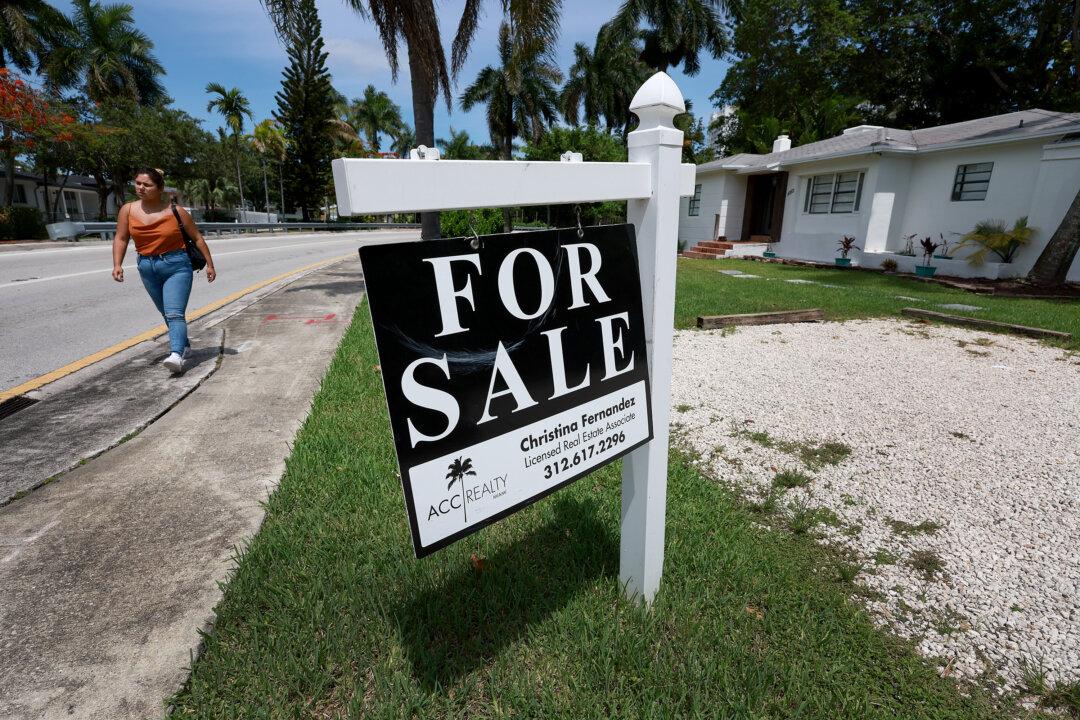Goldman Sachs analysts have warned that the already weak housing market may face further trouble, as the effect of high mortgage rates has yet to be fully felt.
The analysts say that the housing market is expected to slide in the coming months, as existing homes sales data for September failed to fully capture the latest increase in mortgage rates, Markets Insider reported.“While existing home sales declined less rapidly than earlier in the year and home prices increased sequentially, we expect the deterioration in the housing market to reaccelerate in future prints,” Goldman Sachs analysts stated on October 20.
The U.S. housing market is currently in a turbulent state due to high home prices and a rise in mortgage rates.
The latest home sales report from the National Association of Realtors (NAR) showed a 1.5 percent decline in monthly home sales in September to a seasonally adjusted annualized rate of 4.71 million units.




